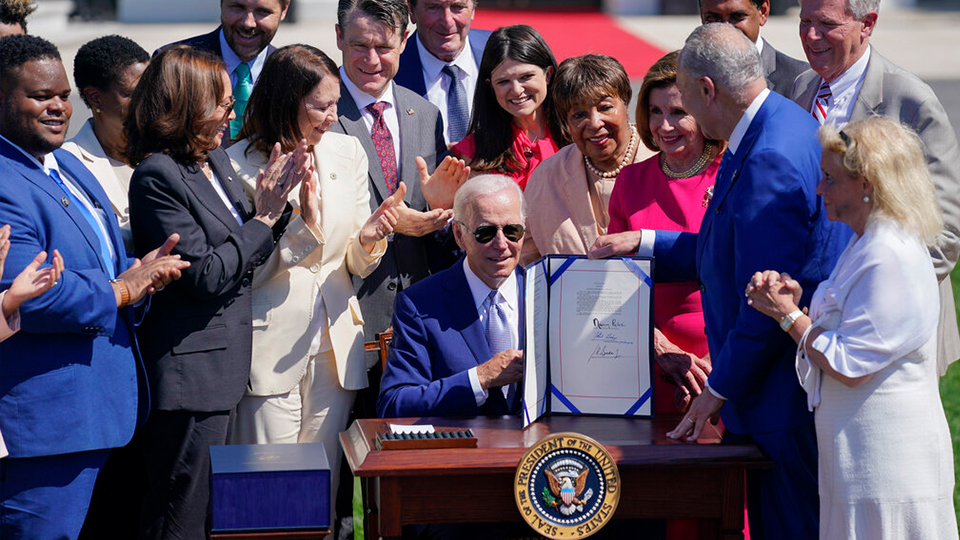Purdue Prof: CHIPS Act signing a ‘big moment’
Subscriber Benefit
As a subscriber you can listen to articles at work, in the car, or while you work out. Subscribe Now
President Joe Biden on Tuesday signed the CHIPS and Science Act of 2022 into law, paving the way for a potential major wave of semiconductor manufacturing in the United States, including Indiana. The law provides more than $52 billion in grants and other incentives for the semiconductor industry as well as a 25% tax credit for companies that invest in chip plants in the U.S. Vijay Raghunathan, professor of electrical and computer engineering at Purdue University, says the law will also support research and development and workforce development initiatives.
Raghunathan talked about the law and its impact on Purdue in an interview with Inside INdiana Business.
“The bill also specifically calls for some pretty big initiatives – things like a national science semiconductor technology center, a national center for advanced manufacturing and packaging, and a couple of others,” Raghunathan aid. “These are all areas where I think workforce development would play a very big role, and that includes academia and universities like Purdue.”
Raghunathan says the timing of the bill’s signing is perfect for Purdue as the university has already begun efforts to support the semiconductor industry.
In late May, Purdue launched its Semiconductor Degrees Program, which aims to quickly ramp up the number of skilled talent for the industry through a suite of undergraduate and graduate degrees and credentials.
In June, the university detailed a new partnership with Taiwan-based MediaTek to establish a new chip design center at the Convergence Center for Innovation and Collaboration in Purdue’s Discovery Park District. The effort is expected to create 30 jobs.
Raghunathan says another major part of the CHIPS Act is about $200 billion in spending over 10 years for various research programs, which will benefit chip manufacturers and academia, including partnerships such as Purdue and MediaTek.
“We’ve been putting in place a very ambitious plan for essentially educating the next generation of semiconductor workforce engineers and technicians,” he said. “So I think this is perfectly timed to really provide the rocket fuel for Purdue’s initiatives in this space.”
Last month, Minnesota-based SkyWater Technology (Nasdaq: SKYT) announced its plan to build a $1.8 billion semiconductor R&D and production facility at the Discovery Park District and create 750 jobs over five years.
SkyWater CEO Thomas Sonderman said at the time the project would depend on funding from the CHIPS Act. He said the company would immediately begin the application process for funding once the bill was signed into law.
Raghunathan says the bill, even before it was signed, had given companies confidence to begin putting their plans to boost semiconductor manufacturing in concrete.
“Even more than the direct funding that the act provides, I think it has sort of provided an impetus to companies actually getting reinvigorated and announcing their plans with an ‘all hands on deck’ kind of mentality,” he said. “So, I think really will help and we’ll see that play out over the next three or four years.”
You can watch the bill signing ceremony from the White House below:
